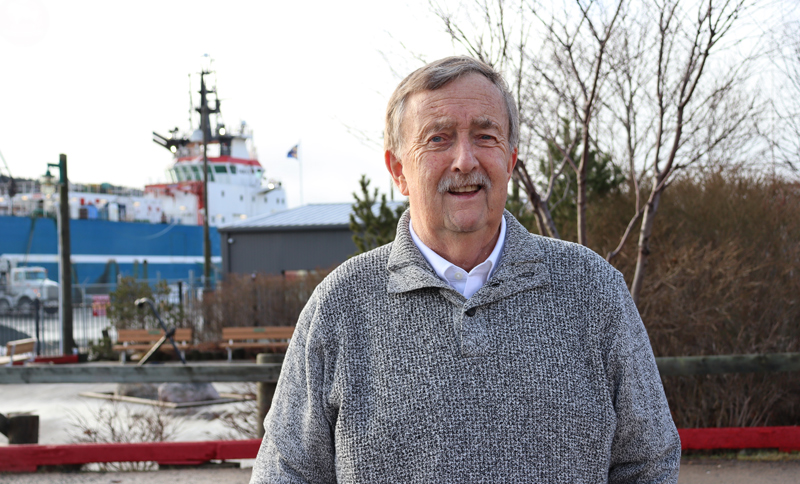Account Login
Don't have an account? Create One

Rob Strong made his first oil and gas industry contacts while slicing bologna and pulling salt meat out of buckets in a corner store on Springdale Street in St. John’s. It was the 1970s. Offshore oil drilling had started and presumptuous references to a coming “boom” popped out of mouths all over the capital city, including people stop-ping by the shop. Strong didn’t know anything about the practical demands offshore—or anything really about the oil business—but, like most of the province, he was eager to learn.
Thinking back to his early career, the now-president of Rob Strong and Associates consultancy says he had “pissed around for many, many years,” including a roughly 12-year stint at Memorial University of Newfoundland, before finally crossing the stage for his BA in Political Science in the fall of 1976. “I was one of the boys. I was involved in the fraternity and I drank too much and I caroused too much,” he says, offering an image at odds with the imminently knowledgeable and respected consultant—albeit a little impish—commonly seen at energy sector events, a person informally dubbed the “grandfather of Newfoundland offshore oil” a handful of years ago.
Strong thought about going to law school after MUN, but the programs he was interested in didn’t take him, even as a mature student. And his degree didn’t open many doors in a tight job market. Learning a little of business at the neighbourhood store, he’d toyed with the idea of going all-in on retail. Being honest with himself, Strong’s blood wasn’t stirred by retail—not nearly to the same degree as it was thinking about an oil boom.
This new thing… this oil industry… that held possibilities.
Even without a commercial discovery, the exploration activity was exciting. It had started with Tors Cove D-52, the first well on the Grand Banks, spudded on June 7, 1966 under operator Pan Am Imperial. Next came the dozens of “bird wells” of the early 1970s, with names like Puffin B-90, Cormorant N-83 and Sandpiper J-77. Oil was struck with a fourth well drilled in the area known as the Jeanne d’Arc Basin on December 17, 1971, with Mobil Oil Canada and Gulf Oil marking a free flow to the surface. That wasn’t a commercial discovery, but it was something. The oil companies kept investing.
Mines and Energy minister Brian Peckford (the same Brian Peckford who later succeeded Frank Moores as premier) began pressing to see local benefits from the existing activity and introduced new regulations on exploration drilling. That led to a brief pause on drilling in response, but it re-started within the year. The area’s oil and gas prospects had hits and misses but offered up just enough positives to maintain continued interest. Multinationals flew in leadership teams for new corporations tied to the activity, with the teams sourced from Texas, the Gulf of Mexico and Norway. They just couldn’t ship in everything or everyone they needed. The only question left for Strong was: how to break in?
“The truth?” Strong says it now with a half-smile, raised eyebrow and glint in his eye. After the briefest pause, considering the time passed, he gives in. As he recalls it, he played a fair bit of squash in those days, which led to the occasional game and friendship with Richard “Dick” Spellacy. He knew Spellacy was a master mariner who had run supply boats and worked as a marine consultant. “I said ‘Dick, I’d love to get a job in this oil business, but I don’t know much about it.’” Spellacy told him to put together a résumé. The next step was the tricky one. What was going to make people look at his application and say: ‘That’s the one. Bring him in’?
Continue reading this story: click below to login/subscribe
Login or SubscribeComment policy
Comments are moderated to ensure thoughtful and respectful conversations. First and last names will appear with each submission; anonymous comments and pseudonyms will not be permitted.
By submitting a comment, you accept that Atlantic Business Magazine has the right to reproduce and publish that comment in whole or in part, in any manner it chooses. Publication of a comment does not constitute endorsement of that comment. We reserve the right to close comments at any time.
Cancel